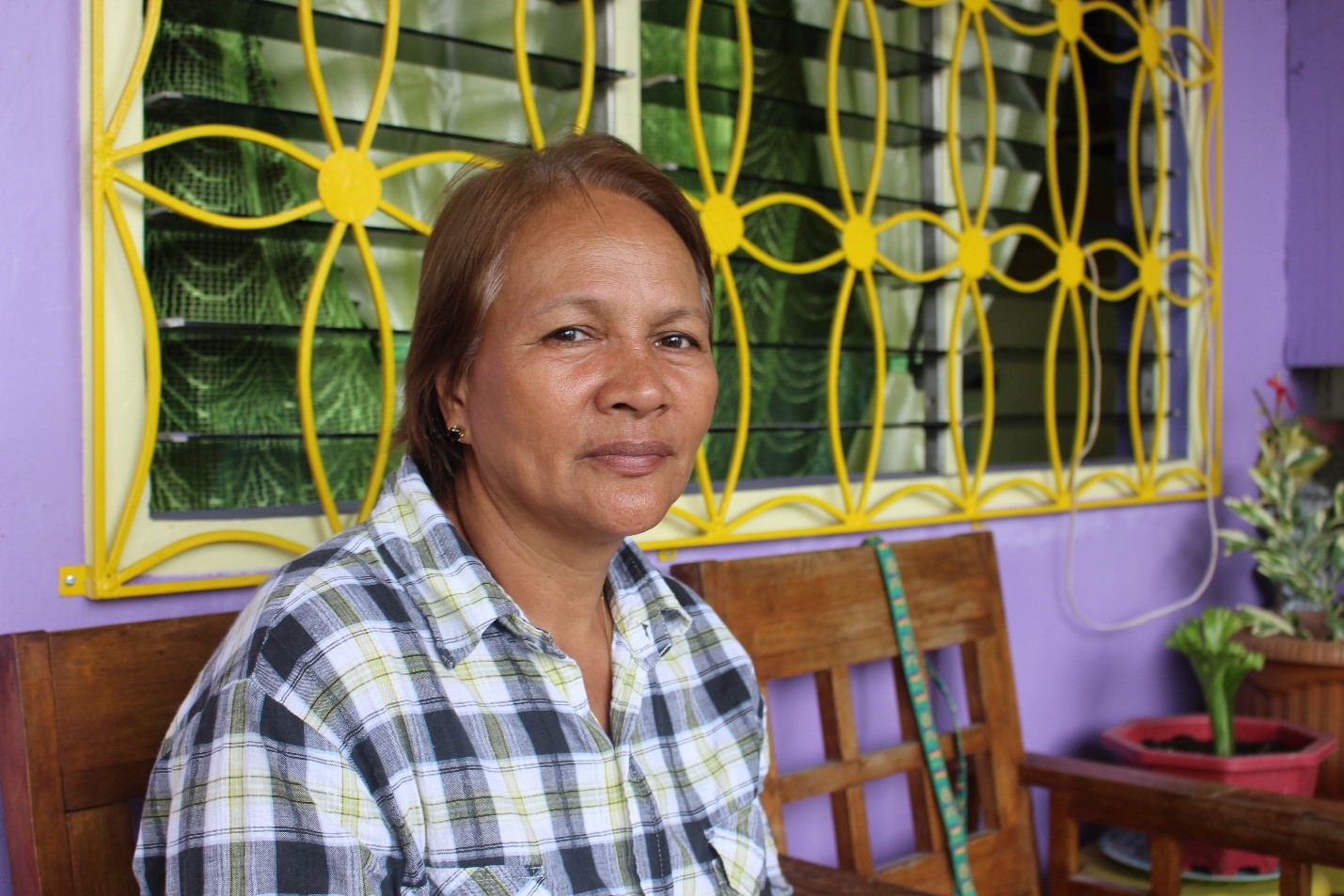ECONOMIC RIGHTS
Visible women: Carving spaces for women farmers in the Philippines

Lucena Jumamoy, 64, sits outside her home after tending to her dogs. From afar her house is a splash of color on an unassuming street. A shocking purple for its walls, and a bright red poster plastered on the door. And coating its windows? A ripe, banana yellow, reminiscent of the fruits that cover hectares of farmland in the town she calls home.
Lucena has tended to bananas her whole life. Banana trees sprawl in Davao de Oro’s sweeping plantations, where the cash crops are a pillar of the economy. Formerly known as Compostela Valley, the province’s plantations were built on the work of early migrants from Visayas or Luzon seeking literal greener pastures in Mindanao’s farms.
When she was a teenager, Lucena’s mother moved their family to the province in search of work. By 18, Lucena was a bagger in one of its farms.
Since then, banana fields have served as a backdrop for much of her life. She stayed for 20 years in the first company that hired her. When another company took over, she took a pay cut that slashed her income nearly half just so she could keep her job. At 20, Lucena was moved to the packing plant, handling hundreds of bananas day in and out. It was there she met her husband with whom she raised a family of five children with income working on the farm.
As a woman farmer, Lucena’s life is carved into the soil of Davao de Oro’s lucrative banana export industry.
Women play a great role in sustaining and building the agriculture sector in the Philippines, but their work is greatly undervalued and their stories unheard.
In the Philippines, farming is still traditionally seen as men’s work, with most leadership positions held by men. Most agricultural land is also formally owned by men, even as women contribute to running them. Globally, less than 15% of agricultural landowners are women, according to the Food and Agriculture Organization of the United Nations (FAO).

Figure 1 Lucena sits outside her home in Davao de Oro. At 64, she is the only woman heading a banana farming association in their town.
When the government began distributing land to farmers in the Compostela Valley in 2008, Lucena, who was eligible to apply for her own plot of land, chose not to due to the cost and time it took to process the application. Her husband submitted requirements and was given a parcel of land under his name.
Majority of those who received land from the government were men, Rolando Torintera, another farmer explains. “Even though there were women who worked on the farm, most of those who applied [for land] were men. Not much women [applied], so it was the men who did.”
Despite not officially owning land, women still do plenty of the work that keeps farms running. When her husband was awarded a plot, Lucena poured her time and labor co-managing it with him.
Such is life for women in agriculture: underrepresented, overworked, and often with less to show for their hard work than their male counterparts. Women make up almost half of the agricultural labor force in developing countries and typically work longer hours than men, if unpaid carework is taken into consideration. But because women have less access to resources, they yield less produce.
Still, Filipina farmers are relatively luckier than their counterparts in the ASEAN as a study shows decision-making in the local agricultural sector is often jointly undertaken by men and women.
When her husband died in 2016, the title to the Jumamoy farm was transferred to Lucena’s name. She now runs the farm with the help of her son. She’s also taken on a new role as head of Survivor Farm, an association of banana farmers in Compostela. At 64, she is the sole woman heading a farmers’ association in the area.
It’s what keeps her busy these days, especially with costs for banana farmers at a high, even as contracts keep the buying prices of bananas at a plateau.
“I want to help all the harvesters in our area… We’ve always been survivors. That’s why Survivor [farm] is our name,” she says.
In an industry associated with men, women like Lucena are proof that there is space for women leaders in the agricultural sector. There is a strong case for investing in women farmers but before this happens, we must shape an inclusive environment that gives them more visibility.
This change starts when Lucena and other women farmers add their voice to a male-dominated conversation. After all, “It can’t just be men who do all the talking. What about the women?” Lucena says.
